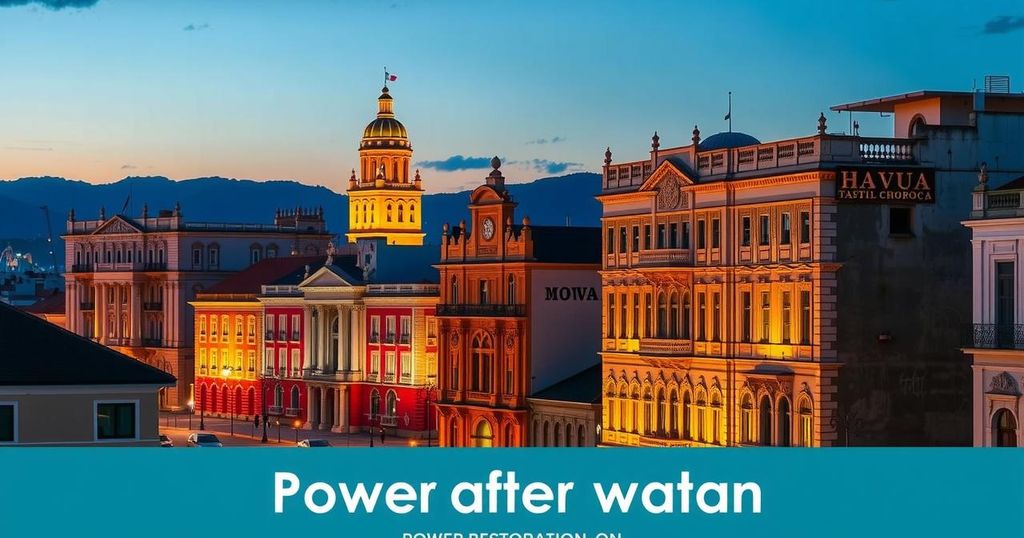Cuba Restores Power to Havana After Island-Wide Blackout

Cuba has reconnected its power grid, restoring electricity to much of Havana after a two-day blackout affecting 10 million people. Approximately two-thirds of residents had power restored by late Sunday, though many still face significant energy shortages. This marks Cuba’s fourth nationwide blackout since October, linked to aging infrastructure and external sanctions.
Cuba successfully reconnected its national electrical grid, restoring power to a significant portion of Havana by late Sunday, following an island-wide outage affecting approximately 10 million individuals. The electric company indicated that around two-thirds of its clientele had their electricity restored, with expectations for further increases overnight.
After experiencing a two-day blackout, neighborhoods erupted in cheers as the lights returned. The grid failure occurred due to a short-circuit at a transmission line in a Havana substation, triggering widespread power generation shutdowns across the island.
The outage impacted Havana, a densely populated area critical to tourism, leading to a paralysis of commerce, closures of restaurants, and a blackout of street and traffic signals. By late Sunday, the two largest oil-fired power plants in the country, Felton and Antonio Guiteras, were operational again, marking a significant step towards full power restoration.
Electricity was also restored in the westernmost province of Pinar del Río just before nightfall. Notably, this outage marked Cuba’s fourth nationwide blackout since October. The country’s oil-fired power plants, which are outdated and struggling, faced a crisis exacerbated by declining oil imports from Venezuela, Russia, and Mexico.
Even prior to this blackout, many Cubans were enduring daily power outages lasting 20 hours or more. Although progress was made in restoring power on Sunday, officials reported only a generation of one-third of the normal daily energy demand, leaving many residents in darkness. The education ministry announced that schools in Pinar del Río, Artemisa, and Mayabeque provinces would remain closed until Tuesday to provide safe conditions for students.
The Cuban government attributes the ongoing energy crisis to a U.S. trade embargo established during the Cold War, along with renewed restrictions imposed by President Donald Trump on the Communist government. In response, the government aims to develop solar farms with assistance from China to lessen reliance on outdated oil generation.
Cuba has made notable progress in restoring power to Havana after a major grid failure led to citywide outages that affected 10 million people. Although two-thirds of residents regained electricity, challenges persist as energy generation remains significantly below typical demand. The Cuban government’s efforts to develop solar energy solutions reflect an urgent response to the ongoing energy crisis, attributed in part to external sanctions.
Original Source: gazette.com







